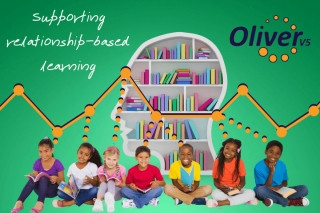- Your School Type
- Solutions
- Resources
- Blog
- Events
- More
- Contact Us
- Book a Demo
- Get a Quote

School librarians are in a position to build relationships with students in which their interests, rather than just literacy and assessment objectives, can provide the focus for active and engaged learning. Helping students to select a book, getting to know what they enjoy, offering suggestions – all these are opportunities to help students develop positive attitudes towards reading, developing independent reading habits.
Transformative educators like Rita Pierson, know that students achieve better educational outcomes when their learning is underpinned by human connections, so that they feel understood, cared for and encouraged. Librarians can cultivate relationships with students by taking the time to find out what they love doing, noticing when they’ve been enjoying books in a particular genre or by a particular author, and encouraging them to pursue their interests more deeply, through connected conversations and personalised recommendations.
Comments from librarians in response to Softlink’s annual School Library Surveys consistently point to the importance of relationships in many aspects of the school librarian’s role, including active promotion of library services, collaboration with staff across the school, team teaching, and supporting students both academically and through the provision of pastoral care.
I love my job and love the interaction that I have with the kids and teachers - it’s awesome. It’s very busy but I like being busy!!!
Libraries are based upon building up knowledge bases, resource collections, and of course relationships over a period of time.
I am involved with lots of team teaching with different subject areas to improve student learning and engagement for various assessment tasks.
School librarians are as creative and proactive in promoting their work as ever, but our increasing use of social media is leading to new partnerships and projects that highlight the impact we can have on teaching and learning. I see the future as one of greater resource sharing and partnerships beyond our traditional school ones.
If students come into the library and leave it with a smile on their face, they will want to come back. It’s exciting to have students tell their teacher, especially replacement teachers, that it is library lesson day and they can’t miss it.
While no technology can replace the human skills and attributes that make librarians such indispensable members of any thriving school community, the right school library software can support them to achieve the best possible outcomes.
Oliver v5 makes it much easier for librarians to fulfil their important role as literacy champions who can guide learners in meaningful, personalised ways. For example, the ability to create reading lists in Oliver v5 and make these available via the home page means they can more easily support class teachers with resources tailored to meet specific teaching and learning objectives.
I’m using the Oliver library system to create resource lists that make it easier for students and staff to locate linked resources in both digital and non-digital formats. This supports teaching programs and aligns resources with the curriculum.
Oliver v5 also ensures a more engaging browsing experience for students searching the collection on their own. Its responsive technology generates reading recommendations based on titles that students have previously borrowed, genres they prefer, and items that are currently popular among borrowers in the school.


The various reports and analytics available in Oliver v5 provide a wealth of useful data for library staff wanting to identify borrowing trends. This information helps with decisions about weeding and acquisitions, as well as providing insights into which books, authors and series to suggest to students based on what is currently popular with their age group.
Research has shown that when learning is personalised and reading is targeted to individual preferences, students progress more quickly and are more likely to persevere, even if the text is a bit challenging because they are genuinely interested. In addition, personalised learning has been found to improve learning outcomes, as students feel more engaged and intrinsically motivated to learn and achieve.
Librarians are excellent recommenders of books however, even the most experienced librarian may struggle at times to recall an exact book title or filter through their extensive knowledge of the library’s collection to come up with selections to excite and engage each individual reader. Oliver v5 helps library staff to offer a personalised reading experience for the benefit of students and provides them with valuable insights that can help them make optimal use of the library collection.